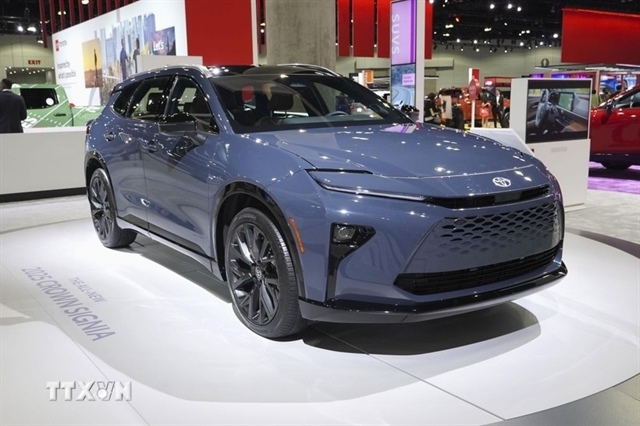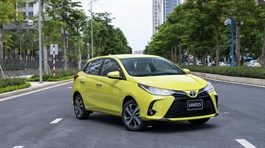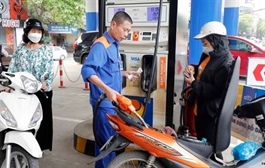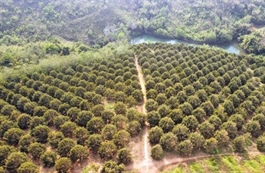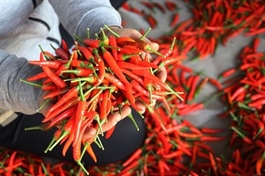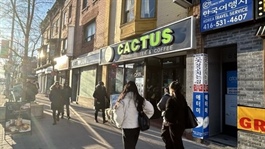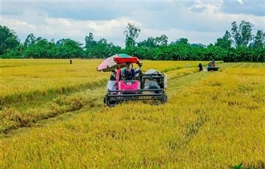Vietnam to act on surge of sugary drinks
Vietnam to act on surge of sugary drinks
Sugar-sweetened beverages in Vietnam may begin to be subject to a special consumption tax later this year, following the potential adoption of amendments to the Law on Special Consumption Tax.

The National Assembly (NA) last week approved a resolution on formulating the 2025 law and ordinance making programme, in which the draft amendments of the Law on Special Consumption Tax (SCT) will be discussed and may be adopted in May 2025.
Besides continued application of SCT on beer and liquor products, the new law will apply to soft drinks under the Vietnamese standard TCVN 12828:2019 with a sugar content of five grammes per 100ml.
These soft drinks include many types such as flavoured drinks, including energy/sports drinks and others; beverages containing coffee and tea; herbal drinks; and soft drinks containing fruit juices or processed from cereals. It will not apply to milk and dairy products, liquid products used for nutritional purposes, pure vegetable and fruit juice, and nectar of fruit, vegetable, or cocoa products.
The Ministry of Finance (MoF), which is drafting the amendments and has sought for them for several years, said that the move will help expand state budget revenues and lessen sugar-related diseases including obesity, as well as to keep Vietnam’s SCT law on a par with international practices.
Following a draft proposal compiled by the MoF, imposing SCT was requested back in 2017 in a resolution on protecting and taking care of the public’s health. “It is a must to increase the SCT for goods harmful to health such as alcoholic and carbonated beverages, and tobacco in order to limit consumption,” the resolution stressed.
The prime minister’s January 2022 approval of the National Nutrition Programme for this decade also stated the need to apply SCT on sugar-sweetened beverages. “All relevant legal regulations and laws have to be reviewed, developed, and supplemented when it comes to nutritional activities. […] Sugar-sweetened beverages must be subject to the SCT,” it said.
The same month, the national plan for preventing and fighting against non-communicable diseases and mental health disorders for 2022-2025 also underlined the SCT imposition on such products.
At the time, the prime minister assigned the MoF to “research and propose appropriate SCT rates for sugar-sweetened beverage products and unhealthy foods” in order to limit the use of products that are not beneficial to health.
The MoF cited the World Health Organization as stating that it is necessary to impose an SCT on sugar-sweetened beverages as they are the main cause of overweight, and obesity is one of the factors. They are also one of the key factors causing non-communicable diseases such as cardiovascular disease, diabetes, kidney disease, gastrointestinal cancer, and strokes, as well as affecting the skeletal and dental systems.
“The increase in soft drink use has led the current situation of non-communicable diseases in Vietnam to explosive growth over the past few decades,” the MoF said.
According to the Ministry of Health (MoH), the rate of overweight and obesity in Vietnamese children increased from 8.5 per cent in 2010 to 19 per cent in 2020.
“There is recent evidence showing a relationship between sugary drink consumption with non-communicable diseases, causing economic losses and a burden of medical costs and mortality,” the MoH said. “Accordingly, reducing consumption of sugar-sweetened beverages can prevent death by contributing to reducing the rate of overweight, obesity, blood sugar disorders, blood fat, and hypertension, which are risk factors for deaths.”
In 2022, many groups of sugary beverages were consumed at a higher rate than in 2021, such as carbonated drinks (16.7 per cent), energy drinks (25 per cent), vegetable and fruit juice (17 per cent), sports drinks (35.6 per cent), and ready-to-drink tea (9.8 per cent).
The MoF has noted that many nations have implemented SCT on sugar-sweetened beverages, rising from 15 markets in 2012 to around 85 today, and five in the ASEAN region, including Cambodia, Malaysia, Myanmar, the Philippines, and Thailand.
For instance, in Mexico after two years of applying SCT, households reduced their purchases of sugary beverages by 11.7 per cent, with an increase in tax revenue of an additional $2.6 billion.
In Thailand, after five years of applying SCT on soft drinks, beverage companies improved their formulas for producing related products to significantly reduce the amount of sugar per each 100ml.
For example, the amount of sugar in energy drinks per 100ml decreased from 16.7 to 6.1 grammes; carbonated beverages reduced from 9.2 to nearly 4.6 grammes; pre-packaged coffee with sugar went down from 8 to 3.4 grammes; teas from 8.7 to 4.3 grammes; fruit juices from 10.6 to nearly 6.4 grammes; and other drinks from nine to 3.4 grammes.
At present in Vietnam, a SCT rate of 65 per cent is applied to beer, and 35 per cent is imposed on liquor of below 20-proof, and 65 per cent on liquor of 20-proof or higher.






